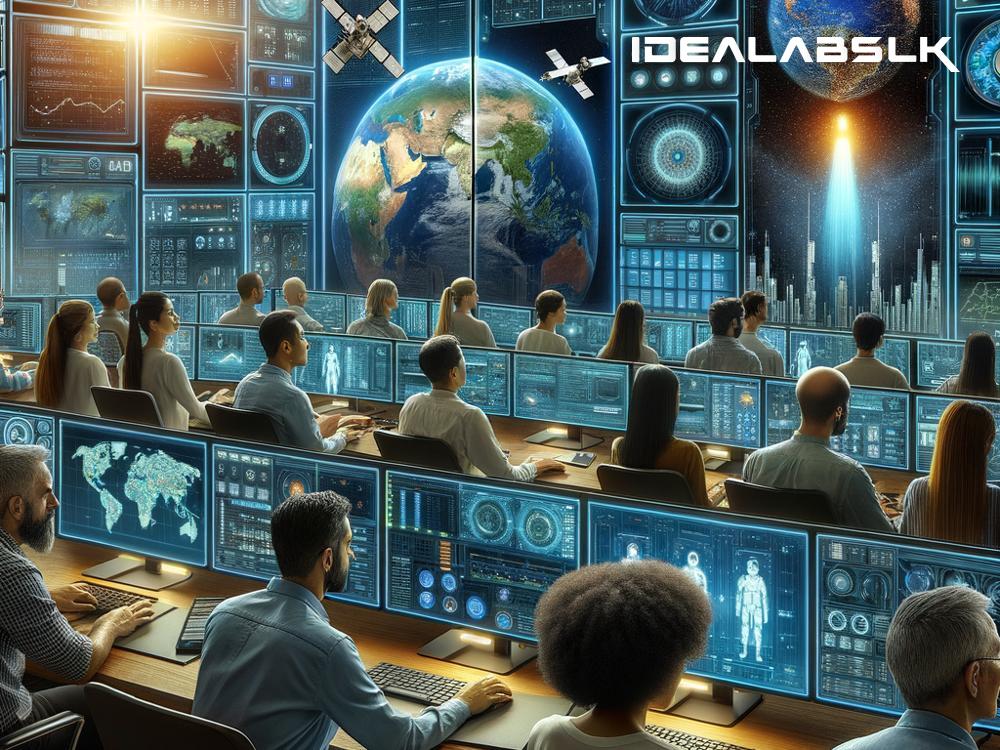The Stellar Duo: Space Research and the Future of AI and Machine Learning by 2024
In the vastness of space, a revolution that could redefine human understanding and capabilities is unfolding. As we delve deeper into the mysteries of the cosmos, the role of Artificial Intelligence (AI) and Machine Learning (ML) in decoding these enigmas is becoming immensely critical. By 2024, the nexus between space exploration and AI advancements is expected to unlock new horizons, influencing not just how we explore space but also how AI and ML evolve, pushing the frontiers of what's possible.
A Celestial Partnership
Space exploration has always been about reaching beyond our limits, understanding the unknown, and asking, "What's out there?" As our ambitions stretch farther, from Mars missions to exploring the farthest galaxies, the complexities and volumes of data to be analyzed are astronomical. Enter AI and ML, technologies that have the power to sift through this cosmic data, identifying patterns, and insights faster and more accurately than humans ever could.
Navigating the Cosmos
Navigating the vast, unknown expanses of space demands precision and adaptability, qualities that AI is uniquely suited to provide. By 2024, AI-driven spacecraft could autonomously navigate through space, making real-time decisions to avoid debris, adjust their course, or even identify interesting celestial bodies to study. This self-sufficiency could revolutionize space missions, making them faster, safer, and more cost-effective.
Deciphering the Stars
Machine learning algorithms are already playing a pivotal role in interpreting the data we receive from space. Whether it's analyzing signals for signs of extraterrestrial life or sorting through images of distant galaxies, ML can spot trends and anomalies that human eyes might miss. By 2024, these capabilities will have advanced further, enabling us to understand the universe's mysteries at an unprecedented pace. The day when we uncover a second Earth or confirm alien life, AI might well be the hero.
Engineering for the Unknown
Designing spacecraft and equipment capable of withstanding the harsh conditions of space is another area where AI and ML shine. Through simulations and predictive analytics, AI can help engineers design more resilient and efficient spacecraft, predict equipment failures before they happen, and suggest optimizations that human engineers might overlook. By 2024, this could lead to breakthroughs in space technology, making missions farther and more ambitious than ever before feasible.
The Spillover Effect
The advancements in AI and ML driven by space research aren't confined to the cosmos. They have profound implications right here on Earth. The technologies developed for space exploration often find applications in various industries, from healthcare to automotive. The AI algorithms designed to navigate spacecraft can improve autonomous vehicles, while the data analysis techniques can revolutionize medical diagnosis.
Moreover, the challenges of space push AI research to its limits, leading to innovations that elevate the entire field of AI and ML. The algorithms that can process the vast and complex data from space missions can also tackle Earth's big data challenges, from climate modeling to managing urban sprawl.
Educating the Next Generation
As the synergy between space research and AI strengthens, it also fosters a new wave of interest and investment in STEM (Science, Technology, Engineering, and Mathematics) education. The prospects of exploring space with AI are inspiring the next generation of scientists, engineers, and programmers to pursue careers in these fields, ensuring that the momentum continues well beyond 2024.
Looking Ahead
As we stand at the cusp of 2024, the integration of AI and machine learning in space research is more than a technological marvel. It's a testament to human ingenuity and our relentless pursuit of knowledge. Space exploration, with the aid of AI and ML, promises not just to unveil the universe's secrets but also to drive advancements that benefit humanity in countless ways.
In this celestial journey, we're not just exploring space. We're also charting the future course of AI and ML, pushing these technologies to achieve what was once deemed impossible. The next leap in space research will likely be powered by AI, and in turn, space will propel AI into new realms of possibility. As we look towards the stars, the future indeed seems bright, illuminated by the combined brilliance of space research and artificial intelligence.

